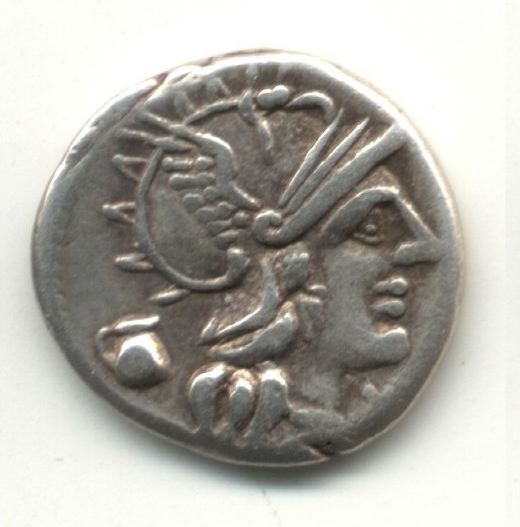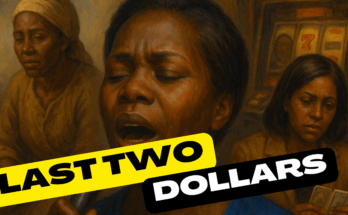As an Amazon Associate I earn from qualifying purchases.
 I often talk about the radical nature of the parables when speaking to preachers. Many times preachers hear me say that and wonder what is so radical? They see it simply as a story that illustrates various aspects of truth. They often use stories to support their points and see them as powerful pictures to help them move their sermons forward. All of that is true, but when you use parables, please don’t domesticate them and thus rob them of their power.
I often talk about the radical nature of the parables when speaking to preachers. Many times preachers hear me say that and wonder what is so radical? They see it simply as a story that illustrates various aspects of truth. They often use stories to support their points and see them as powerful pictures to help them move their sermons forward. All of that is true, but when you use parables, please don’t domesticate them and thus rob them of their power.
The Workers In The Vineyard
What am I saying? Let us take a common parable the workers in the vineyard in Matthew 20:1-16. The “master of the house” went out and found workers and made a deal, “you work for me today, and I will give you a denarius.” (Matthew 20:2) A denarius is a roman coin that represented a days wage. All is well at this point. The workers get what is expected of them. A “fair” deal.
Then the master goes out and gets other workers. Later in the day, they are promised “whatever is right.” Then later in the day, at the 6th, 9th, and even 11th hour, the master goes and grabs others to work in the vineyard.
But then the story goes wrong. The master of the house gives each of the workers a denarius. All of them receive a days wage. But some of them only worked for an hour. The men who had worked all day were upset. They had poured sweat for the master in the vineyard. There is no reason to believe that they hadn’t worked “like a dog.” There is no evidence that they took a long lunch. No they “worked.” And yet the master decides to give them the same wage as the ones who came in at the last minute.
Was the All Day Worker Justified?
If you have not struggled with the idea of the all day worker being justified in getting mad, then you are not ready to preach this passage. This is against all that we know. I can hear some columnists saying that the “master” is promoting sloth. How are you going to get anyone to work if you follow such a program? Who is going to come out tomorrow and work all day if we follow that method of payment?
I can hear others claiming that the “master” is attacking the very foundation of our society. He is attacking our economic system. He is attacking fairness. He is attacking all that is right and good. In fact if this story appeared anywhere else than in the Bible we would jump on board the side of the day long worker ready to attack the “master of the house.”
Don’t get me wrong…the all day workers were wrong…but not because they were evil…but because they were judging according to our normal understanding of fairness, according to our economic system, according to our way of life, the all day workers were right, the master is not playing fair and is attacking our very way of life by setting up this way of being and living.
That is the Point
And that is the point of the parable. It was designed to shock us into a realization that the present order is not God’s order. It was an attempt to remind us that the economic system and even our concept of fairness is not the “Kingdom of God.” No it is the kingdom of men. It is an attempt to shock us out of the ridiculous notions that we have. The notions that God is a republican elephant or a democratic donkey. It is an attack on the very mindset that is at the root of all of our idolatry that turn God into our clan, group, political party, country, or even denomination. No it can’t make sense unless you change your mindset….
Remember the reason for telling this parable was to let us know what “the kingdom of heaven is like…” And then the master reminds the worker, “I gave you what I promised….and furthermore…the first shall be last in the kingdom.”
Robbing It Of Its Surprise, Robs It Of Its Power To Transform
What we do, so often is rob the parable of its “surprise.” We preach it as if the all day workers had not point. We preach it as if they were simply arrogant for wanting more. Some of us even go so far as to question the motives of the all day workers. They were greedy…
And then we further act as though this story has no implications for anywhere but “church.” God is gonna take to heaven folks who just got in at the end….so you ain’t got no right to be mad at them coming in at the end…you ain’t got no right to be selfish about the church…you ain’t got no right to think you own the church pew you sat on because you been coming to this church all these years….
That’s how we preach it…and there are elements of truth in that reading…but when we preach it like that…we rob it of its ability to transform us…and transform our way of living not just in church, but all the rest of the days of the week. When we turn the all day workers into villains who made an unreasonable request…we lose the reality that they were simply working according to the “kingdom of humanity” and have the same mindset that we have. We know if someone told us their boss did that, we might suggest that they stop working for that boss…or show up late…That’s the point!!! The story is an attack on our very idea of what is fair and what is not…in the Kingdom of Heaven. It won’t make sense to you unless you change your mindset….
No the workers who worked all day weren’t wicked and arrogant. They didn’t need to change from being wicked and arrogant to being righteous…no they needed to have a paradigm shift from human thinking to God thinking. That is the point!!! And we need that same change. A change in mindset from the kingdom of humanity to the kingdom of God. And I pray that we will allow that powerful shift to enter our sermons now and ever.
Amazon and the Amazon logo are trademarks of Amazon.com, Inc, or its affiliates.









What a powerful word on that parable which i share the same insight as you sir. It takes me back to the theif on the cross who said Lord REMEMBER ME and Jesus said Today thou will be with ME in paradise.He didn’t (the theif) have time to say Father I stretch my hand to thee no otherr help I know….naw all he could say was LORD REMEMBER ME………he got in at the end. And i’m glad about it !
“Guilty!,” shouts the judge as he slams down his gavel and I stand before him ashamed. You described exactly my experience with this parable, thinking of the early workers as wrong for complaining about the latter workers receiving the same pay. But you stretch me even farther by stating that we need to take this out of the church context and apply it to every day life. We should not only consider the perspective of each person/faction in the story but also how the lesson of the story can (and should) extend beyond the church walls. Thank you!
To God be the glory, because I can remember the first time I read that text I too thought that it was unfair. But God showed me that everybody don’t get it at the same time. Just because God saved me 15 years ago, my savation is no difference between the one that received the Lord a day ago. We all are given the chance to receive eternal life. A good conversation piece & eye-opener!
Minister Merritt,
The thought that you felt it was unfair when you first came to God is what you are supposed to feel. You are supposed to feel that it is unfair because it is unfair according to the mindset that we live and work according to in the world.
The only way we will lose that is to allow the transformation from the kingdom of this world to the kingdom of God…And that transformation affects more than how we feel and relate in church…but it affects how we relate to all of God’s creations…it is a transformation of thought…a paradigm change…
This is “hard” thing to teach. People have sat in church for 30, 40 or more years and still don’t get it. I have had the most difficult time breaking down the worldview as oppose to the biblical view. This comes along with teaching what is the Kingdom of God. We may be in the world but not of the world….I am seeking to teach that we have been placed in the kingdom of God and God has his own set of rules and regulations, i.e., spiritual principles to live by. I teach it step by step, line by line, precept upon precept. I am now asking God to show me how to do it better, because it seems that people are not getting it,so I must not be sharing it adequately. I based these comments on the questions I get after the teaching. Kingdom living is a very important concept to me. Transformation of thought only comes with renewing of the mind which only comes with time in the word and in the presence of the Creator. I realize its difficult to teach and see results because people want it but they don’t want to do what it takes to get it. There is no change without personal time in the Word and no substitute for prayer. Whatever happened to “…sanctify thyself..”? Have people stop trying to do that. When we accept salvation sincerely, we make a shift “spiritually” from the world to the Kingdom, we become members of the Holy family, we become joint heirs with Jesus Christ. When I received salvation as a teenager, the first thing I thought was there were things I couldn’t do any more and places I should not go because now I was saved. There were even ways I couldn’t talk any more (I cursed profusely). So I had to move away from people who lived certain ways and did not want my new way of life for them. People don’t seem to properly value salvation any more.
Yes…I think it is difficult to teach the kingdom of God as a radical alternative to the regular ways we “do” church, work, home, and simply life.
This is why the Master used parables…these parables demonstrated the radical disconnect between our usual way of living and the inbreaking Kingdom of God.
But too often we have taken these parables and have robbed them of their ability to attack our status quo. We have tamed them into promoting our new conventional understandings of things. So our people cannot even hear the radical nature of them…
how do we get around that…What do you think? What do others think? What can we do to impress on ourselves and our people the radical difference between the Kingdom and the kingdoms of this world?
How do we get past the “yeah I heard that before” nature of preaching the Bible to those who think they already know it? How can we open our own eyes to the need that we ourselves need eye salve to see correctly?
Excellent article on the purpose of the parable. You are right when you said, “. . . they needed to have a paradigm shift from human thinking to God thinking.” This is one of the greatest challenges a preacher faces – getting people to think the way God thinks. A major part of preaching is revealing the mind of God to His people and help them to transform (Romans 12:1-2) their lives to live not as worldly people, but as people of the kingdom of God. Jesus’ parables certainly challenge our way of thinking today just as they did the people, the Pharisees and other religious leaders of His day.
Thanks for the wonderful thoughts on this parable as well as parables in general.
I agree with what you have said Brother Cox II and I applaud you for your courage. You speak from the heart to challenge us for the perfecting of our calling. I would just like to add a comment on the concept: The first shall be last and the last shall be first. I believe that within the context of the parable found in Mt. 20:1-16, we can see an appreciation for the spiritual legitimacy of this present generation. I believe that to worship God from an indirect, historical point of view is a form of idolatry. The problem is that it limits the present day reverlations from God, consequently we act as if God no longer enter acts with His people today. The statement the first shall be last and the last first indicates to me that an evolution of spirituality is taking place. When I look at the prophetic word it tells me that when that which is perfect shall be established none of the former things shall be remembered or even come to mind (Isaiah 65:17). How can we say that we love the brethen when we will only acknowledge God’s word from an historical point of view? Happy black history month!
Brady Williams
Pastor Williams,
LOL…Your perspective comes loud and clear in your comments whether directly relevant to the point or not. The parable, in this post, was simply given as an example…again this was not a full exegesis of the whole parable..neither was it meant to be….
After having said that, let me directly address the burden that you seem to demonstrate in your comments. I believe as you seem to believe that there is a move a-foot to keep God in the past. We look to the past to find God’s action and movements. We look with skepticism at all manifestations of Spirituality and spiritual power today.
And yet God is a God of the living and not the dead. I agree that we as followers of the Most High must do a better job of making room for the work of God in the contemporary world…Not only must we make room, but have the audacity to actually identify God’s contemporary work…
To do that, we must have that paradigm shift that the parable was pointing us to…otherwise we will identify God only with the conventional and the superficial demonstrations of piety…
But more than that…even those of us who do identify and name God’s work in contemporary existence often, in my opinion, misidentify this work as the god who favors one political party over another rather than seeing that both are well underneath the kingdom of God. We see the god who favors our country above everyone else…not seeing that the kingdom of God overthrows such madness…
Once again, Rev. Cox I’m glad to that I’ve come into association with this ministry. I not only enjoy and feed off of your articles, but also from the feedback of other ministers of the gospel from all parts. I also have been guilty of “robbing” the parable of its power in the past.
God Bless all,
Well said, Dr. Cox. Thank you for sharing that. I must admit that I have been guilty of robbing texts of their shock value. I stand corrected. Keep on challenging us. You are making a difference.
May God continue to bless you that you may continue to bless others.
Sincerely,
Michael E. Woods